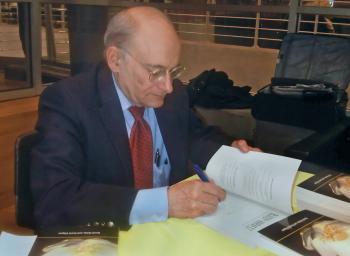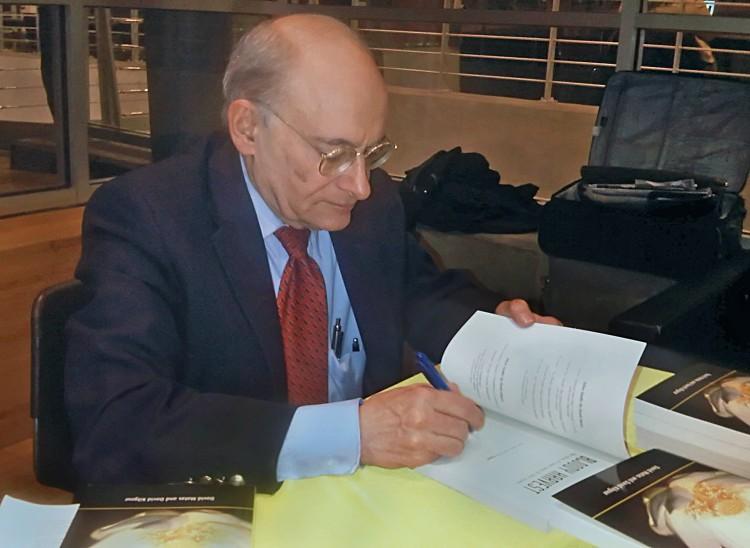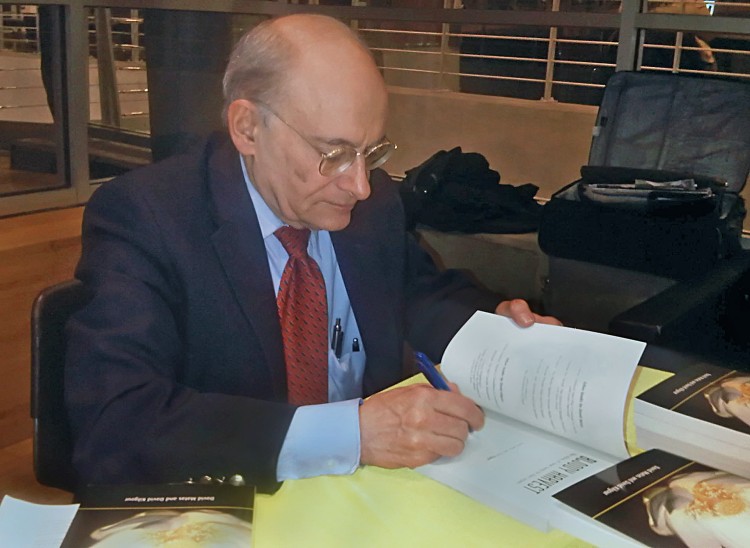NEW YORK—Not many young boys wanted to do something about the Holocaust. David Matas, 66, was an exception, and he has since discovered a human rights tragedy that he describes as “a form of evil we have yet to see on this planet.”
Matas, a Canadian and international human rights lawyer, has now spent four years unraveling a Holocaust-like tragedy that most people find difficult to comprehend.
His latest book, Bloody Harvest: The Killing of Falun Gong for Their Organs, sums up a practice in China where the state sanctions seizures of organs from unwilling Falun Gong practitioners. Falun Gong is a peaceful meditation practice based on truth, compassion, and tolerance; it grew so popular in the late 1990s that the Communist regime vowed to eradicate it. Amnesty International and the United Nations are among the organizations which continue to report on the persecution that includes many instances of torture and killing.
“It struck me as something I couldn’t dismiss out of hand,” Matas said of his reaction to the allegations of organ harvesting crimes. “This was the type of allegation I couldn’t see anyone else doing anything about—it was too difficult.”
Matas teamed up with fellow Canadian and former member of Parliament, David Kilgour, to investigate the claims.
It was tough, he said. There were no corpses, no documents, no crime scene evidence; they were unable to even gain entry into China.
“One of the things that struck me was the evidence of blood testing,” Matas said. He and Kilgour spoke to dozens of Falun Gong practitioners around the world who had survived torture in China and were now refugees.
“I would see these people who didn’t know each other, all over the world, all telling me the same things,” Matas said. “They were obviously not blood tested for their health because they were tortured.
“This was a very chilling piece of evidence,” he said.
Organ transplants require blood and tissue-typing to ensure compatibility.
Chinese hospitals advertised organ transplants on their Web sites—a kidney was selling for around $60,000 and a wait of only two weeks was guaranteed by some hospitals.
Matas said he feels he and Kilgour are up against the entire Chinese Communist Party in exposing the organ harvesting.
He was in New York Thursday evening to sign Bloody Harvest, the book he co-authored with Kilgour and the third in their organ harvesting reports. Jennifer Lawrence, a student hoping to become a human rights attorney, bought a book and had it signed.
“This is a very eye-opening experience,” she said. “[Matas] exposed a lot of what is going on in China that I wasn’t familiar with.”
Lawrence said she would bring the issue up in her human rights class, something Matas would be happy to hear.
“The book is meant to equip people with the ability to deal with [this issue] on their own,” Matas said.
Kilgour and Matas were recently nominated for the Nobel Peace Prize.
Matas, a Canadian and international human rights lawyer, has now spent four years unraveling a Holocaust-like tragedy that most people find difficult to comprehend.
His latest book, Bloody Harvest: The Killing of Falun Gong for Their Organs, sums up a practice in China where the state sanctions seizures of organs from unwilling Falun Gong practitioners. Falun Gong is a peaceful meditation practice based on truth, compassion, and tolerance; it grew so popular in the late 1990s that the Communist regime vowed to eradicate it. Amnesty International and the United Nations are among the organizations which continue to report on the persecution that includes many instances of torture and killing.
“It struck me as something I couldn’t dismiss out of hand,” Matas said of his reaction to the allegations of organ harvesting crimes. “This was the type of allegation I couldn’t see anyone else doing anything about—it was too difficult.”
Matas teamed up with fellow Canadian and former member of Parliament, David Kilgour, to investigate the claims.
It was tough, he said. There were no corpses, no documents, no crime scene evidence; they were unable to even gain entry into China.
“One of the things that struck me was the evidence of blood testing,” Matas said. He and Kilgour spoke to dozens of Falun Gong practitioners around the world who had survived torture in China and were now refugees.
“I would see these people who didn’t know each other, all over the world, all telling me the same things,” Matas said. “They were obviously not blood tested for their health because they were tortured.
“This was a very chilling piece of evidence,” he said.
Organ transplants require blood and tissue-typing to ensure compatibility.
Chinese hospitals advertised organ transplants on their Web sites—a kidney was selling for around $60,000 and a wait of only two weeks was guaranteed by some hospitals.
Matas said he feels he and Kilgour are up against the entire Chinese Communist Party in exposing the organ harvesting.
He was in New York Thursday evening to sign Bloody Harvest, the book he co-authored with Kilgour and the third in their organ harvesting reports. Jennifer Lawrence, a student hoping to become a human rights attorney, bought a book and had it signed.
“This is a very eye-opening experience,” she said. “[Matas] exposed a lot of what is going on in China that I wasn’t familiar with.”
Lawrence said she would bring the issue up in her human rights class, something Matas would be happy to hear.
“The book is meant to equip people with the ability to deal with [this issue] on their own,” Matas said.
Kilgour and Matas were recently nominated for the Nobel Peace Prize.







